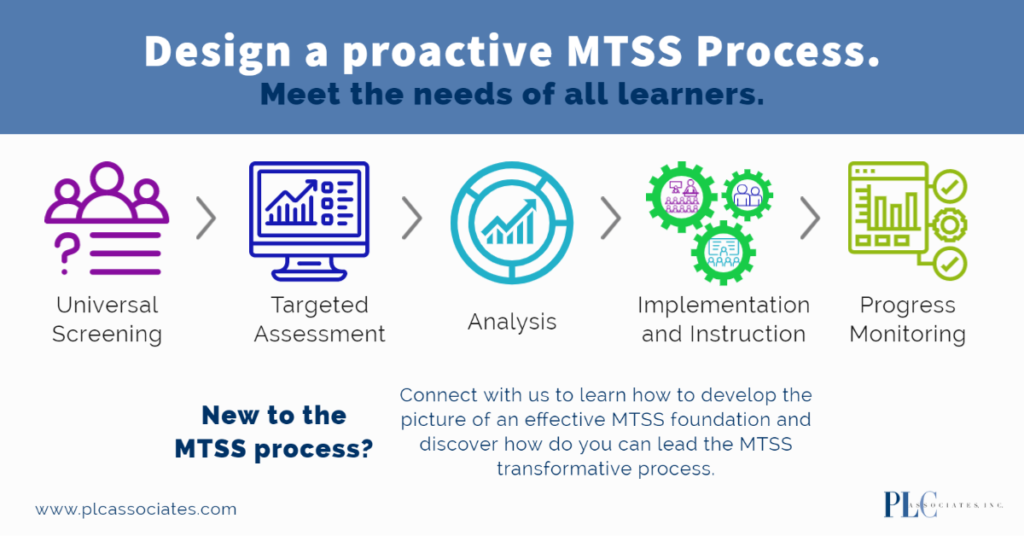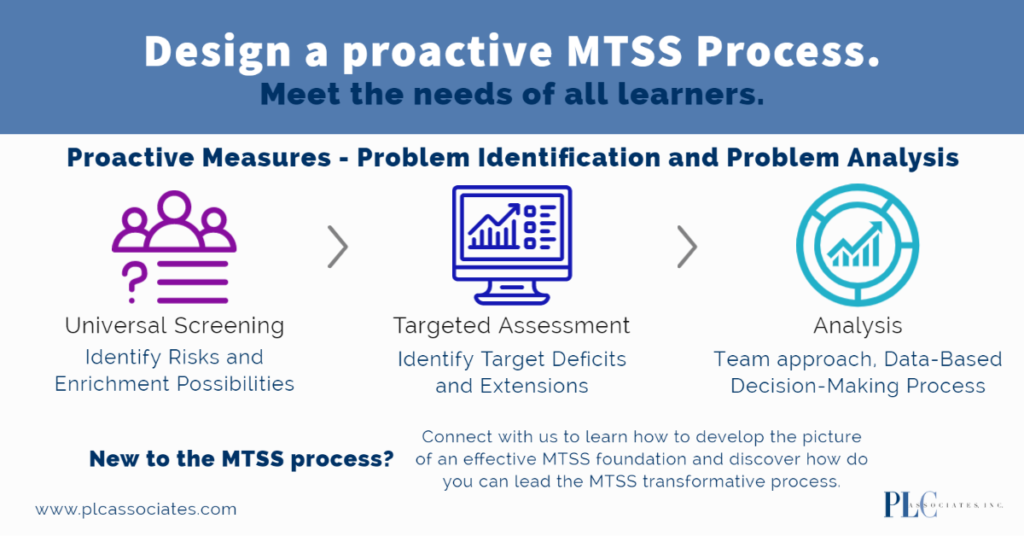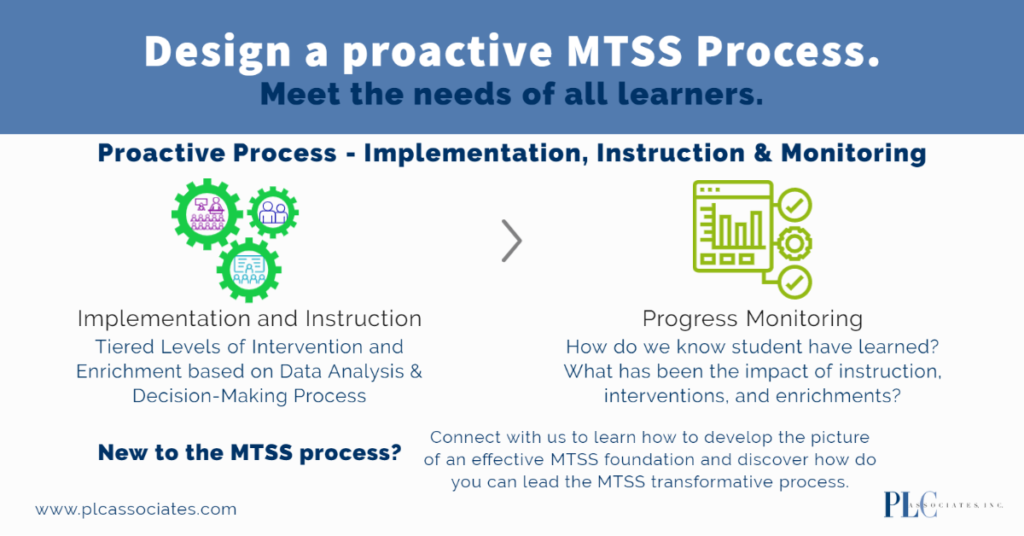Why MTSS for your School District?
With the numerous initiatives and activities that districts and schools simultaneously implement, it is critical to align efforts to support and accelerate the implementation of Multi-Tiered System of Supports (MTSS). MTSS provides a framework for school improvement that focuses on system level change across the classroom, school, and district. Developing this system of academic and non-academic support may represent a significant change for districts and schools—one that affects the entire school system and may require a long-term change process (of three or more years). A detailed scaling-up multi-year plan may be useful for incrementally expanding the focus and scope of MTSS.
MTSS guides both the provision of high-quality core educational experiences in a safe and supportive learning environment for all students and academic and/or non-academic targeted interventions/supports for students who experience difficulties and for students who have already demonstrated mastery of the concept and skills being taught.
Schools and districts are encouraged to work toward an integrated approach to support students’ academic and social-emotional competencies. The goal is to create a systematic process that ensures every child receives the additional time and support needed to learn at high levels. If the mission is to ensure all students learn at high levels, then:
- As educators, we accept responsibility to ensure high levels of learning for every child,
- And assume all students can learn at high levels.
How does MTSS work?
Instead of the “waiting for failure” assessment model of pre-IDEA days, MTSS takes a proactive approach to identifying students with academic or behavioral needs. Early assessment and intervention for these students can help them catch up with their peers sooner. The key components of MTSS include:
- Universal screening of all students early in the school year
- Tiers of interventions that can be amplified in response to levels of need
- Ongoing data collection and continual assessment
- Schoolwide approach to expectations and supports
- Parent involvement
The integrated instruction model of MTSS uses collected data to assess student needs and provide them with interventions in appropriate tiers.
Understanding the essential components of MTSS is an important part of its implementation, but research suggests effective implementation is a major challenge for educators. Successful implementation of MTSS demands ongoing planning, continuous improvement, and sustaining and expanding efforts. Teams must examine current capacity and readiness, develop plans for ongoing professional learning, create structures and processes, conduct ongoing evaluation and review of implementation to inform continuous improvement, and engage stakeholders as partners in the work.
In order to do this well the following must be in place or put in place:
- Leadership and Governance
- Student Support (School Culture, Family and Community Engagement)
- Financial and Asset Management
- Human Resources and Professional Development
- Curriculum, Instruction and Assessment (Fidelity of Implementation)
Consider using the Data Driven Dialogue Protocol to support Entry Point Discovery and for designing a multi-year plan:
- What is the central cog?
- What are the supporting cog drivers?
What are the benefits for investing in MTSS for your School District?
MTSS creates a positive environment for all students which in turn impacts school climate. Positive school climate is the leading indicator for such outcomes as increased academic achievement, increased teacher retention, and reduced discipline referrals.
The interventions and supports found in MTSS help in relationship building, which is a key factor in student success. Additionally, a supportive school environment allows each student to work through their challenges and catch up with their peers. Defined tiers of intervention for both academic and behavioral challenges enables educators to address student needs, both as a group and individually.
Authored by: Emory Roethel, Associate.
Accomplish Great Things in Your District
We work with you to close gaps, replicate best practices, and build high-impact, sustainable systems.
Let’s Chat About How We Can Help
Reach out to PLC Associates for a 15-minute solutions conversation.
Directly with Penny Ciaburri at 585-703-7521 and would look forward to talking with you.
Accomplish Great Things in Your District
We work with you to close gaps, replicate best practices, and build high-impact, sustainable systems.
Let’s Chat About How We Can Help
Reach out to PLC Associates for a 15-minute solutions conversation.
Call us directly at 1-800-774-6801. We look forward to talking with you.



